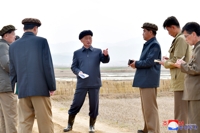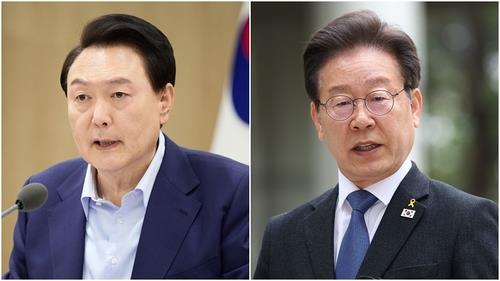Blinken lays out 'most urgent' priorities for U.S., leaves out N. Korea
By Byun Duk-kun
WASHINGTON, March 3 (Yonhap) -- U.S. Secretary of State Antony Blinken laid out eight priorities for American diplomacy on Wednesday but again skirted the issue of how to deal with nuclear-armed North Korea.
In his first major public address as secretary, Blinken touched on a wide range of issues ranging from tackling the COVID-19 pandemic and promoting democracy to climate change.
"When President Biden asked me to serve, he made sure that I understood that my job is to deliver for you ... I take this responsibility very seriously, and an important part of the job is speaking to you about what we are doing and why," said Blinken.
"So for this, my first major speech as secretary, I want to walk you through how American diplomacy will carry out the president's strategy," he added.
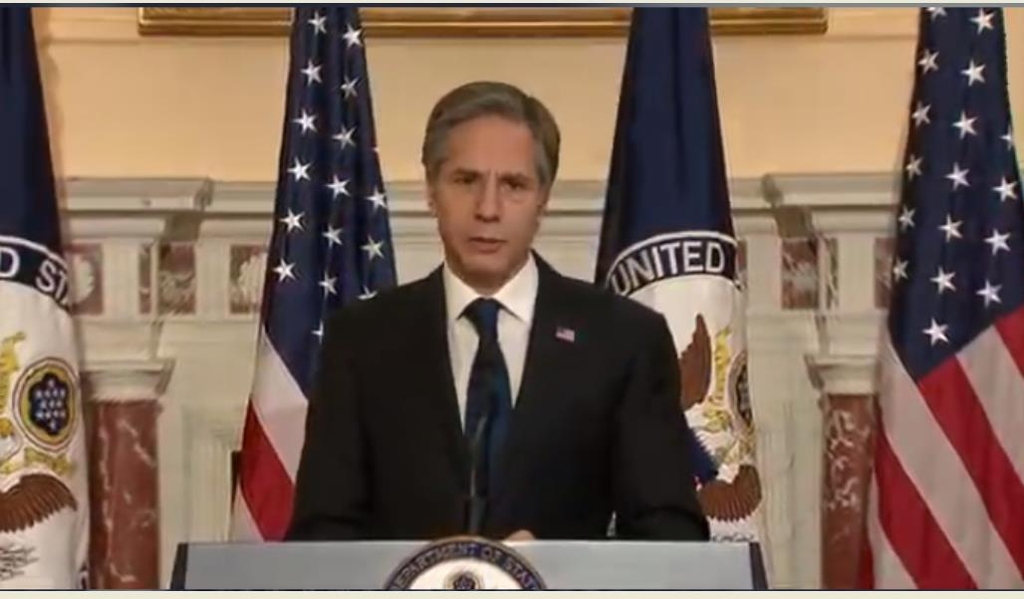
The captured image from the website of the U.S. State Department shows Secretary of State Antony Blinken delivering his first major public speech as secretary on March 3, 2021, at the State Department in Washington. (Yonhap)
As its top priority, the State Department will help tackle the pandemic and economic downturns around the world, which in turn will help revitalize the American economy, Blinken said.
It will also work to promote democracy around the world, but also help renew democracy at home as the U.S. seeks to lead the world by the power of example, he noted.
The eight priorities also included reforming the U.S. immigration system and facing challenges posed by China.
North Korea, on the other hand, was only briefly mentioned as one of the countries that present challenges to the U.S., and largely in comparison with those posed by China.
Blinken called the U.S. relationship with China "the biggest geopolitical test of the 21st century."
"Several countries present us with serious challenges, including Russia, Iran, North Korea, and there are serious crises we have to deal with, including in Yemen, Ethiopia and Burma. But the challenge posed by China is different," he said.
The administration has been conducting what it calls a complete review of U.S. policy toward North Korea since Biden took office on Jan. 20, and thus far has yet to offer any direct message on the North or plans to deal with the nuclear-armed state.
State Department spokesman Ned Price has said the lack of direct engagement with North Korea does not mean the challenge the North poses is not urgent or a priority for the U.S., but only that the U.S. is laying down the necessary groundwork, such as ensuring cooperation among allies.
Blinken echoed that sentiment, saying that other important issues may not have been included in his list.
Still, he said, the eight priorities he laid out were the "most urgent" issues facing his country.
"These are the eight top foreign policy priorities of the Biden administration. You may notice some things about that list.
First, important items are not on it. That doesn't mean they don't matter to us, or that we won't work hard on. Indeed, I look forward to setting out what we'll do on other vital pieces of our foreign policy in the days and weeks ahead," said Blinken.
"But these priorities, the ones I've talked about today, are the most urgent, the ones on which we must make swift and sustained progress," he added.
bdk@yna.co.kr
(END)
-
 Overdue debut of Korean abstract art pioneer Yoo Young-kuk at Venice Biennale
Overdue debut of Korean abstract art pioneer Yoo Young-kuk at Venice Biennale -
 Defense chief says N. Korea's hypersonic missile 'unsuccessful' in last-stage glide flight
Defense chief says N. Korea's hypersonic missile 'unsuccessful' in last-stage glide flight -
 Relax, immerse yourself in scents at Venice Biennale's Korean Pavilion
Relax, immerse yourself in scents at Venice Biennale's Korean Pavilion -
 N. Korea has capability to genetically engineer biological military products: U.S. report
N. Korea has capability to genetically engineer biological military products: U.S. report -
 S. Korea marks 30th anniv. of Korean Pavilion at Venice Biennale with contemporary art
S. Korea marks 30th anniv. of Korean Pavilion at Venice Biennale with contemporary art
-
 Overdue debut of Korean abstract art pioneer Yoo Young-kuk at Venice Biennale
Overdue debut of Korean abstract art pioneer Yoo Young-kuk at Venice Biennale -
 Relax, immerse yourself in scents at Venice Biennale's Korean Pavilion
Relax, immerse yourself in scents at Venice Biennale's Korean Pavilion -
 Artist Lee Bae captures ethereal Korean aesthetics at Venice Biennale
Artist Lee Bae captures ethereal Korean aesthetics at Venice Biennale -
 S. Korea marks 30th anniv. of Korean Pavilion at Venice Biennale with contemporary art
S. Korea marks 30th anniv. of Korean Pavilion at Venice Biennale with contemporary art -
 Defense chief says N. Korea's hypersonic missile 'unsuccessful' in last-stage glide flight
Defense chief says N. Korea's hypersonic missile 'unsuccessful' in last-stage glide flight
-
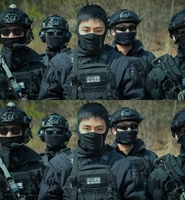 Facebook page unveils photos of BTS member V in counter-terrorism unit gear
Facebook page unveils photos of BTS member V in counter-terrorism unit gear -
 Gov't likely to accept university chiefs' request to lower med school enrollment quota
Gov't likely to accept university chiefs' request to lower med school enrollment quota -
 S. Korea not invited to G7 summit meeting this year: sources
S. Korea not invited to G7 summit meeting this year: sources -
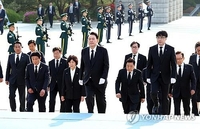 Yoon's approval rating sinks to lowest point since taking office
Yoon's approval rating sinks to lowest point since taking office -
 S. Korea, U.S. special operations forces stage airborne drills
S. Korea, U.S. special operations forces stage airborne drills















